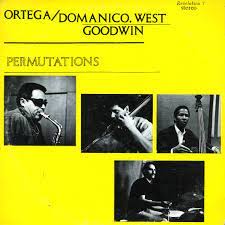
Daily Dose Of Jazz…
Charles Louis Domanico, better known professionally as Chuck Domanico, was born on January 20, 1944 in Chicago, Illinois. Settling in Los Angeles, California in the mid-1960s, for nearly forty years, he was a central jazz figure in Hollywood who contributed to many movies and TV programs.
Domanico worked with Frank Sinatra, Barbra Streisand, Carmen McRae, Joni Mitchell, Taj Mahal, Diane Schuur, Natalie Cole, and The Manhattan Transfer. He participated in instrumental jazz performances by Chet Baker, Henry Mancini, Shelly Manne, Oliver Nelson, John Klemmer, Roger Kellaway, Barney Kessel, and Art Pepper.
His bass can be heard in themes for television shows like M*A*S*H, Cheers and Frasier, and he contributed to the soundtracks of more than two thousand films.
Double bassist and bass guitarist Chuck Domanico, who played on the West Coast jazz scene, transitioned from lung cancer on October 17, 2002 at the age of 58.
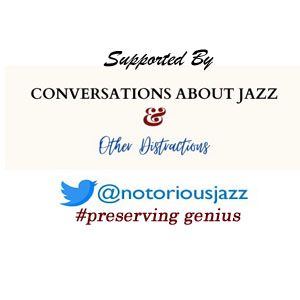
More Posts: bass,bass guitar,history,instrumental,jazz,music

Daily Dose Of Jazz…
Alain Mion was born of French extraction on January 14, 1947 in Casablanca, Morocco but was raised in Paris, France.Influenced by Bobby Timmons, Ray Charles and Les McCann, his style varies between jazz, soul jazz and funky music. By the time he was 19 he formed his own trio and performed at the Blue Note. This subsequently led to him gigging at various festivals with Hank Mobley and Philly Joe Jones.
1974 Alain created the jazz funk group Cortex and recorded a dozen albums before embarking upon a career under his own name in 1982, recording to date eleven albums, such as Pheno-Men, Alain Mion in New York recorded with David Binney and Marc Johnson, and Some Soul Food recorded in Stockholm, Sweden with Patrik Boman and Ronnie Gardiner.
In 2008, he emerged with a new group, Alain Mion FunKey Combo with drums, bass and a saxophone section consisting of Italian and French musicians. He reinvented his new group Alain Mion & The New Cortex with the singer Adeline de Lépinay reprising the role originally performed by Mireille Dalbray on the Troupeau Bleu album.
In the United States, Alain Mion and Cortex’s songs have been sampled by several hip-hop artists including but not limited to Madlib, Fat Joe, DJ Day, MF DOOM, Wiz Khalifa, Curren$y, Mellowhype, Tyler The Creator, Rick Ross, and Lupe Fiasco.
Pianist, composer, arranger, and vocalist Alain Mion continues his exploration of the jazz idiom.

More Posts: arranger,bandleader,composer,history,instrumental,jazz,music,piano,vocal
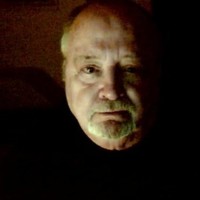
Daily Dose Of Jazz…
Dannee Fullerton was born January 12, 1944 in Los Angeles, California and at the age of four, moved with his mother to Saudi Arabia, joining his father who worked for the Arabian American Oil Company. By 11, he was enrolled at the Institut Montana Zugerberg, an all boys international school in Switzerland. It was here that drums became a strong influence and his very first drum set was a pair of brushes and a set of bongo drums. Along with singing, Dannee played the guitar and the drums.
At 14, he started a band at the Institut and gave concerts 3 to 4 times a year, something that had never before been accomplished on that campus. By 15 Dannee attended a concert and on the bill was the Gerry Mulligan Quartet and the Benny Goodman Orchestra featuring Gene Krupa playing Sing,Sing,Sing. The effect upon hearing this music caused Fullerton to give away all his rock and roll albums and so he could seriously concentrate on jazz.
During these formative years, he taught himself and others to play Jazz and continued to hold jazz concerts at school. Creating the school’s first jazz club, convincing the Director to allow students to attend jazz concerts, he was able to see concerts by the Oscar Peterson Trio, Ella Fitzgerald, Duke Ellington, Count Basie, Louis Armstrong, J.J. Johnson, Stan Getz, The Modern Jazz Quartet, Ahmed Jamal, Cannonball Adderly, the John Coltrane Quartet and the Dave Brubeck Quartet… Dannee was now hooked on the jazz art form and was intent on learning it.
Graduating from high school, Fullerton attended Berklee College of Music and studied under Alan Dawson, Herb Pomeroy, John La Porta, and Jack Peterson. Later he studied privately with drummer Pete La Roca. He played sessions with Keith Jarrett, Mick Goodrick, Gene Perla, John Abercrombie, Sam Rivers, Sadao Watanabe, Byard Lancaster and other students at the time. He performed with the Keith Jarrett Trio for two years, in his Boston, Massachusetts trio.
Drafted into the US Army during the Vietnam era, he served in various Army bands over the next 24 years, serving in Europe, Korea, Okinawa and many locations within the United States. During his service Dannee performed with Maynard Ferguson, Herb Ellis, The Ink Spots, Bill Watrous, Bill Lohr, “Jazz Express” (Dannee’s own group) John Payne, Don Erdman, Kurt Black, Buddy Tate, Joe Newman, Mike Francis and Curt Warren to name a few.
Retiring from military service in 1989, he settled outside Tacoma, Washington. Drummer Dannee Fullerton, who never recorded professionally, continues to perform locally with Jack Percival, Sid Potter, Tim Eikholt, Tom Russell, Gary Black, Joe Bach, Roger Gard, Pete Lira, Bob McNamara, Ken Upton and Lance Buller, among others.

More Posts: bandleader,drums,history,instrumental,jazz,music
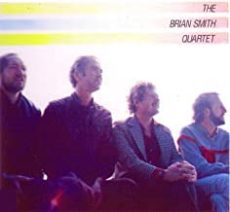
Daily Dose Of Jazz…
Brian Smith was born on January 3, 1939 in Wellington, New Zealand and studied piano in his youth but was primarily an autodidact on reeds. He played locally in pop and jazz groups before moving to England in 1964, where he played with Alexis Korner’s Blues Incorporated.
Following this stint he played at Ronnie Scott’s Jazz Club from 1966 to ‘67 and in the big bands of Tubby Hayes and Maynard Ferguson from 1969 to 1974. Smith went on to work with the group Nucleus from 1969 to 1982. During the next two decades he also performed with Mike Westbrook, Neil Ardley, Mike Gibbs, the Spontaneous Music Ensemble, Keith Tippett, Pacific Eardrum and Paz.
1982 saw the return to New Zealand, where Brian began playing with his own quartet. His 1984 album Southern Excursions was named Australian Jazz Record of the Year. Based out of Auckland, working with Frank Gibson, Jr. later in the Eighties, his Moonlight Sax albums were chart successes in New Zealand. Saxophonist and flautist Brian Smith continues to perform and record.

More Posts: bandleader,flute,history,instrumental,jazz,music,saxophone
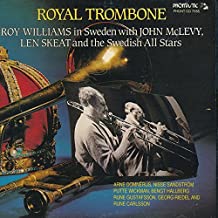
Daily Dose Of Jazz…
John McLevy was born on January 2, 1927 in Dundee, Scotland. He played in Europe with the Benny Goodman Orchestra in the 1970s, alongside George Masso, Hank Jones and Slam Stewart.
He performed with artists such as Max Bygraves, Roy Williams, accordionist Jack Emblow and later in a duo with veteran trumpeter Tommy McQuater.
Trumpeter John McLevy transitioned on November 27, 2002.

More Posts: flugelhorn,history,instrumental,jazz,music,trumpet

